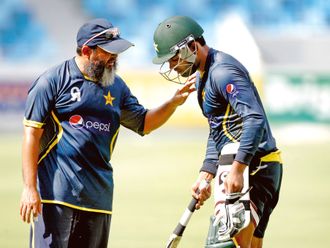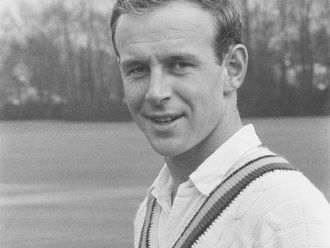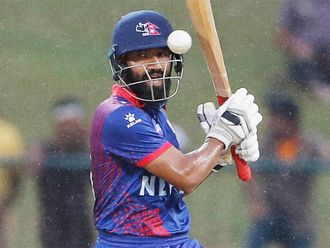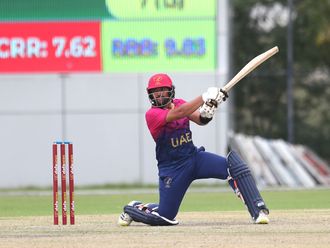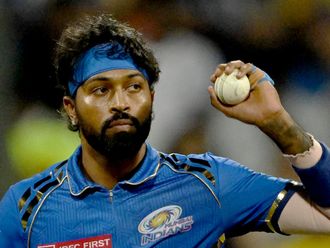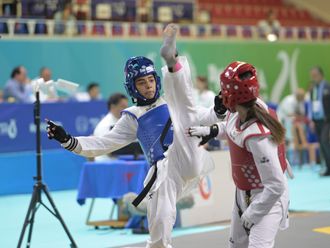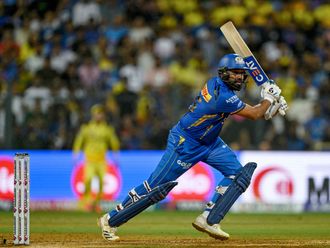London: There have been moments in the past 18 months when it seemed possible the best starting point for anyone compiling an anatomy of the current state of English cricket would be a shortlist of the things that aren’t actually broken yet.
Understandably, at a time when the England team has won only 22 of 70 international matches since the 2013 Oval Ashes Test, the temptation has been to reach for the grand narrative of decay and decline: from the sell-the-family-silver disappearance from mainstream TV of what was once a national summer sport; to the sense of wider alienation exposed by the dropping from the team of a popular star batsman.
The England and Wales Cricket Board has at least been busy. Heads have rolled, perhaps even some of the right ones, and currently the chairman and chief executive are “finalising the job description” for a new cricket director role that will, it is hoped, provide a decisive flushing-out of the various blockages and constipations clogging the system.
Admittedly this has already been going on for quite a while, but excitement is still mounting over what could yet be one of the great job descriptions - perhaps even the outstanding job description of its generation.
It is of course easy to mock what is a very ECB kind of revolution (when in doubt, appoint another senior manager). But this a fascinating process in its own right. With all due respect to the more orthodox coaching credentials of Peter Moores, it is probably worth acknowledging at this point that in many ways the person the ECB is trying to replace with the new role is Andy Flower.
Remember him? Yes, that Andy Flower, a head coach of such persuasive intelligence that, along with the imprint of Duncan Fletcher’s broader influence, he still provides a basic template for what the ECB is now seeking: an alpha-male head coach with the vision and strength to bend those around him to his will.
Not that many of those who follow England cricket will want to hear it. There is still plenty of animosity among those disenchanted by some grisly mistakes towards the end of Flower’s time, fanned in turn by Kevin Pietersen’s bizarrely saccharine public re-invention as a kind of horribly wronged cricketing Princess Diana.
And yet as the leadership vacuum struggles to define itself this is also probably the moment to consider the nature of Flower’s influence in the good times. Or at least to examine more closely exactly what the new overlord might hope to learn from his potent shadow, not least from some very obvious flaws in planning, succession and development. Flower’s strengths were obvious.
Under his fine-point micromanagement a group of mature international players were able to perform for three years to the peak of their abilities, most noticeably during the brilliantly focused, brilliantly brutal roll-over glory of a World Twenty20 victory, a Test whitewash of India and an away Ashes victory.
Flower’s influence was clear: England won like him, and they also eventually lost like him too, an unbending, magnificently uncompromising collapse on all fronts. It is easy to get bound up in issues of personality here. A picture of a bruising intense, unintentionally comic team dictator has since emerged (stories of Nick Compton being carpeted for playing air cricket, and of Pietersen similarly, for looking out of the window).
Even the grandly desiccated style of cricket - bowling dry, batting long - has been fingered as evidence of something rotten, self-absorbed, scowlingly doomed.
Whereas from a certain angle the real problems with England under Flower look systemic, organisational and avoidable. The main one being that a successful team simply stood still, failed to replace component parts, and ended up basically eating itself. Flower knew how to wring the best from what he had. But his record in bringing through new players is surprisingly awful. Where are they, the Flower children, legacy of England’s most successful modern era?
Of the team currently playing in Grenada only four members - Jonathan Trott, Gary Ballance, Joe Root and Ben Stokes - made their Test debuts during Flower’s near five-year tenure as head coach. Three were brought in by Fletcher, four by Moores (including Stuart Broad under Moores Mk1).
If Trott and Root are the only new batsmen from Flower’s time to enjoy any sustained success, his record with bowlers is even more barren. Only one Flower-era debutant bowler has more than 90 Test wickets, the convalescent Steven Finn.
By way of comparison, Australia in the same period have brought through three bowlers who now have more Test wickets than Finn. Even India, who barely play (or rather barely play during) Test matches have two bowlers, plus Virat Kohli and Cheteshwar Pujara scoring runs.
England meanwhile simply won without looking back. It is worth issuing a disclaimer at this point. It is of course generally pointless to judge a head coach on the number of successful players making a debut on his watch. For one thing coaches don’t control the flow of talent through the complex structures below. For another head coaches don’t pick the team, selectors do; although the coach has a vote and a big say in how a player settles after that. More to the point, who the coach was when you made your debut it is often entirely misleading.
Jimmy Anderson is technically a Duncan Fletcher player. In reality he’s nothing of the sort. Peter Moores helped his Test career to bloom. Andy Flower oversaw the best of it. And yet in this case the sense of congealment, the lack of through traffic, the failure to identify and groom new outstanding talent is so pronounced the bald facts of debutants and subsequent success does seem to reflect a wider failure.
Under Flower, England handed out 20 new Test caps: 10 of those have yet to get into double figures. The hostile view of Flower’s success with England is that he took a team of fine, mature players approaching their peak, organised it nicely and then simply ran it into the ground.
Certainly Fletcher and Moores have an advantage in this area in that both entered the job as career head coaches with a passion for developing players. Take a look down the lists of England’s top 50 Test run scorers and top 50 wicket takers and Fletcher can claim a full playing XI from those given debuts on his watch (for the record: Cook, Strauss, Vaughan, Bell, Pietersen, Collingwood, Anderson, Hoggard, Harmison, Panesar).
Moores can muster up Matt Prior, Broad and Graeme Swann. Flower’s only top 50 discoveries to date are Trott and Finn. It is perhaps hardly surprising this should be his weakness. Flower has had coaching qualifications since the late 1980s, when he become one of the Zimbabwe Cricket Union’s first professional coaches. But with England he was something of an accidental general, a support staffer nicknamed “the Fridge kicker” - after one infamous dressing room meltdown - handed the main gig when Moores was sacked.
The paradox of his current academy role at Loughborough is that it is perhaps providing the kind of slow-burn apprenticeship in development and elite player progression that might have made his success as head coach a little more sustainable, a little less dry.
Either way the lesson seems clear enough. Whatever the remit, no matter how inspirational the job description, the role of the new cricket director must involve a genuine engagement with life outside the bubble, a duty to nurture talent and potential in County cricket rather than just parasitically consume.
The idea of a “football-style” supremo has been mentioned by some although presumably only those unfamiliar with the powerlessness and panic-stricken disposability of the average football manager. Cricket has an advantage here.
The Counties and the national team are under the same hand, unlike the horrendously damaging power split in English football between the Football Association and Premier League. It is possible in theory for the promised big-name overlord to have a genuinely benevolent impact on both domestic and international cricket.
Sift out the good bits of Flower, most notably that imperiously high spec team leadership. Add a large dose of Fletcher, some big-name charisma, and a sprinkling of the best intentions of Moores. And we might just be getting somewhere.
- Guardian News & Media Ltd, 2015


